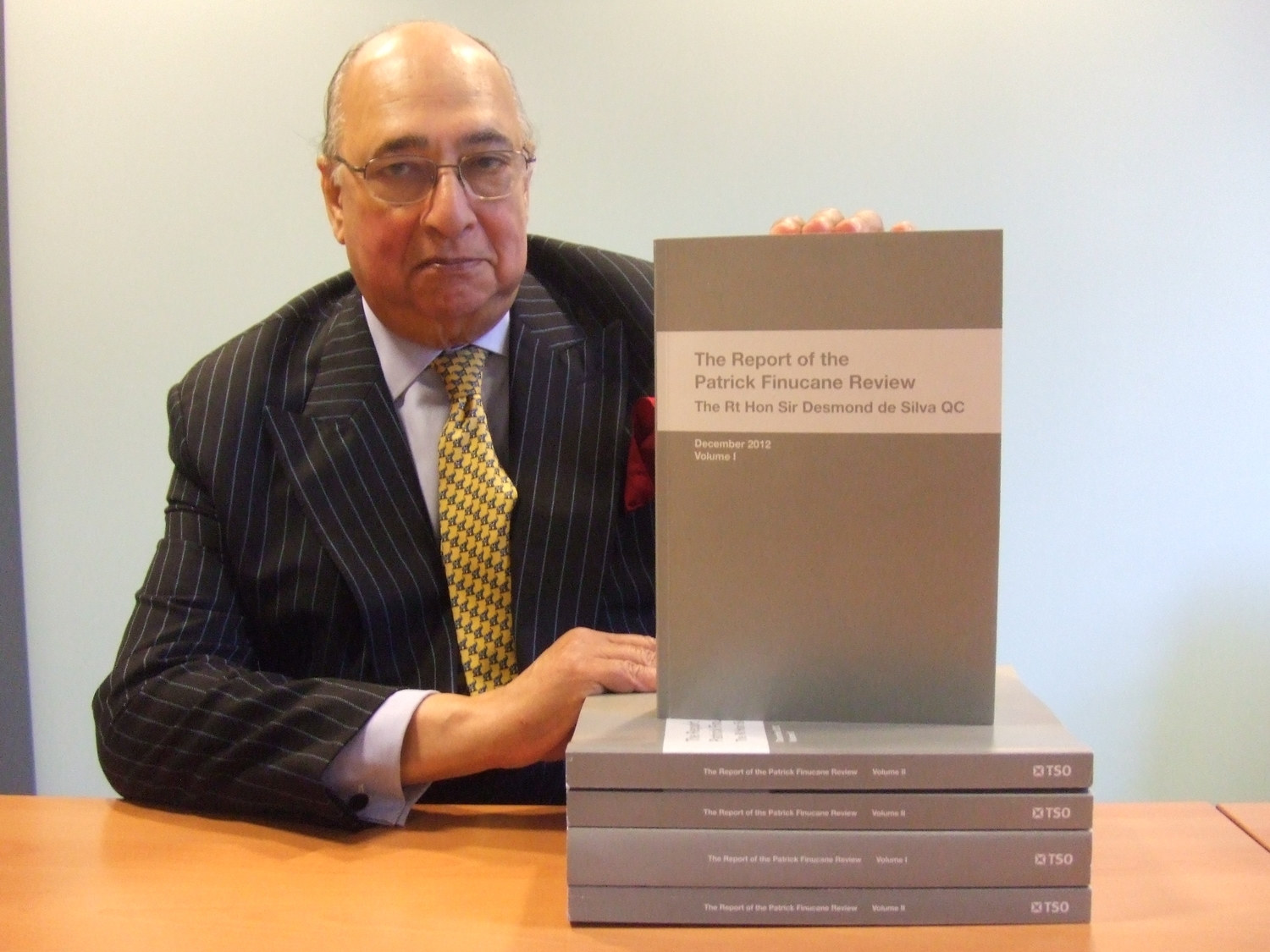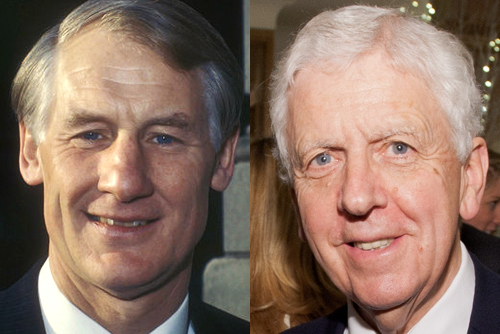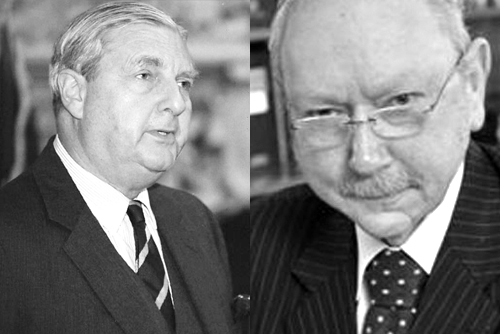THE murder of Pat Finucane continues to haunt the highest echelons of British government but the extraordinary lengths which government ministers and senior Downing Street officials undertook to prevent the state’s involvement in the killing of its own citizens can now be more fully revealed than ever before.
The Detail has studied the report by Sir Desmond de Silva into the killing and discussed it with those who know the case well. Previously unseen dimensions of the murder itself, the wider activity of state agencies at the time, and the attitude of the current government to these events include:
:: The deep involvement in intelligence matters by the prime minister of the day, Margaret Thatcher, and her concerns about divisions between agencies;
:: Thatcher’s successor John Major, his NI Secretary Peter Brooke and Defence Secretary Tom King all arguing against prosecution of Brian Nelson, the leading British Army agent who played a key role in Finucane’s murder;
:: An admission by Major’s private secretary, Charles Powell, to the prime minister in 1991 that a collapse of the Nelson trial “would be a very good outcome” for the government.
In the event no evidence of the state’s involvement in the killing of its own citizens ever made it into the public domain as murder charges against Nelson were dropped when he pleaded guilty to other charges in 1992 and he was sentenced to 10 years in prison.
THE CASE WHICH WON’T GO AWAYWhile the identities of the UDA gunmen who shot the human rights solicitor dead in front of his wife and three children are well known, allegations of high-level political involvement continue to persist.
In 2001 the British government pledged to establish a public inquiry into allegations of security force involvement in the solicitor’s murder, if recommended by retired Canadian judge Peter Cory.
Despite Judge Cory concluding that there was evidence of security force collusion the British government refused to establish a public inquiry.
Instead in October 2011 Prime Minister David Cameron asked Sir Desmond de Silva QC to undertake a review of papers in the case.
In December 2012 Sir Desmond concluded that while agents of the state had colluded in the solicitor’s killing there was no evidence of any “overarching state conspiracy”.
DOWNING STREET AND THE DIRTY WARHowever, a detailed analysis of declassified documents released as part of the review process provide a telling account of the “frantic effort”made by senior government ministers to prevent the full story of the state’s involvement in the murder of its citizens emerging if British army agent Brian Nelson was forced to stand trial. read
A former senior RUC Special Branch officer, who had personally briefed then Prime Minister Margaret Thatcher about the terrorist threat in Northern Ireland during the late 1980s, told Sir Desmond that the British government’s view of how Special Branch handled agents was to "“carry on with what you’re doing but don’t tell us the details.” read
The officer concerned is not identified but is believed to have gone on to be promoted to one of the highest positions within the RUC.
Despite de Silva’s claims that senior government ministers had lacked any proper knowledge of the activities of the intelligence services in Northern Ireland, disclosed documents in his own review process reveal how Mrs Thatcher had personally intervened in a dispute over intelligence co-operation between the RUC and British army in August 1988.
A note of the meeting, which took place six months before the murder of Pat Finucane, recorded that Mrs Thatcher “was very concerned that this situation appeared to exist”. read
The level of the Prime Minister’s personal interest in intelligence operations in Northern Ireland is further evidenced by a note from her Downing Street office to the NIO, dated 24 August 1988, advising that better co-ordination of intelligence “is not an organisational matter, but a question of trust between those concerned, which can only be gained by working together”. read
Despite evidence that the British army’s Force Research Unit actively helped its agent Brian Nelson to supply both the UDA and UVF with intelligence material to target innocent Catholics, the de Silva report concluded that there “was no evidence that ministers sought to direct the security forces to take a relaxed or permissive approach to loyalist paramilitaries”. read
However documents declassified during the review process show the “frantic effort” of senior government ministers, including Mrs Thatcher’s successor John Major, to try to ensure that the involvement of the intelligence agencies in state sponsored violence was never disclosed at Nelson’s trial.
On September 26, 1990 Defence Minister Tom King was warned by his officials of the potential “political damage” and a “strong political dimension” in the Nelson affair." read
Following public criticism from the Irish government and international human rights groups Mr King lobbied Mr Major and other government ministers to ensure that: “the Irish government should be made to understand that by not prosecuting in certain cases we may sustain our capability to identify loyalist threats to the Catholic community and take action to prevent terrorism of that kind.” read
THE PRESSURE APPLIED TO THE ATTORNEY GENERAL AND DPPOn March 11, 1991 then Attorney General Patrick Mayhew informed Mr King that the Director for Public Prosecutions in Northern Ireland, Sir Alasdair Fraser believed there was sufficent evidence to prosecute Nelson with two murders, four charges of conspiracy to murder, one charge of attempted murder and other lesser charges, including involvement in the killing of Pat Finucane. read
A MoD memo, dated March 15, 1991 stated: “The judgement on the strength of the case is for the DPP (NI) only; his preliminary conclusion indicates he believes the evidence to be sufficient for Nelson to face a court to answer it and the chance of a conviction to be greater than 50-50.”
Despite the apparent independence of the DPP, documents declassified during the review process reveal the extraordinary extent to which government ministers and senior Downing Street officials were involved in attempts to ensure the Nelson trial never took place.
Under normal legal procedures government ministers are not permitted to interfere with a prosecution case.
However the Shawcross Principles (which allows ministers to give their view to the Attorney General on issues of public interest) was invoked to permit a range of senior Tory ministers to lobby Mr Mayhew to prevent the Nelson trial from going ahead.
The Prime Minister, Northern Ireland Secretary of State Peter Brooke, MoD minister Tom King and senior government ministers all argued against Nelson’s prosecution.
In a memo to Mr Major, Cabinet Secretary Robin Butler wrote that while there were grave considerations in not prosecuting Nelson: “The best way of persuading the attorney not to authorise prosecution, if that is what you and your colleagues decide to try to do, may be to lead him to the conclusion that, while the damage a prosecution would do to the intelligence effort is certain, the prospects of a successful prosecution are much less so.” read
Sir Robin later drafted a letter for the Prime Minister, which was to be sent to Attorney General, setting out Mr Major’s opposition to the trial.
A handwritten note, again apparently drafted by Sir Robin, reiterated the need to avoid prosecution of Nelson.
“Whatever the hubbub, people would understand why we could not bring the prosecution” it said. read
Another memo from Mr Major’s Private Secretary Charles Powell, dated March 19, 1991, stated the while Prime Minister would make his own judgement, intelligence-gathering was a “very murky world” and “you have to use the material to hand: the old adage that it takes a thief to catch a thief ”. read
The efforts of the Prime Minister and senior officials to avoid an embarrassing trial led to Mr Major holding a meeting (understood to have taken place on May 1, 1991) with the Attorney General to argue the public interest issues against prosecution.
On May 15 Mr Powell told the Prime Minister that any potential decision to collapse the trial would be a “very good outcome” for the government.
In a handwritten note, added to a letter from Peter Brooke to the Prime Minister, Mr Powell wrote:
“One possibility is that when it becomes apparent that the prosecution case is relying on Nelson’s debriefing to his handlers and treating it like a confession, the defence will object on grounds that this is not a proper statement taken under Police and Criminal Evidence Act (PACE). If the objection is sustained the case could collapse at the start – a very good outcome (Attorney General) and DPP (NI) are salved and case comes to an end before too much damage is done.” read
DID GOVERNMENT MINISTERS REALLY NOT KNOW ABOUT NELSON?The de Silva review concluded there was no evidence that cabinet ministers had known about Brian Nelson’s role within the Force Research Unit and his involvement in a series of loyalist murders.
The report concluded that a lack of proper guidelines for the intelligence agencies to follow meant: “the system appears to have facilitated political deniability in relation to such operations rather than creating mechanisms for an appropriate level of political oversight”.
Security experts had expressed surprise that the de Silva review was unable to find any evidence as to whether or not ministers had been briefed by MI5 on either Brian Nelson’s role inside the UDA in the late 1980s or the series of high profile legal challenges Pat Finucane had won against the British government in the years before his murder.
It has now been confirmed by de Silva that Mr Finucane was also the subject of a “propaganda initiative” carried out by MI5 aimed at “discrediting and unnerving” the solicitor in the1980s by spreading rumours that he was a member of the PIRA. read
While de Silva found that MI5’s “propaganda” targeting had not been particularly focused or well controlled, he concluded that: “the initiatives certainly came to include within their scope individuals who were not members of terrorist organisations but prominent figures in the broader nationalist and republican communities.”
The “black-op” targeting was finally terminated in 1989 after the murder of Pat Finucane when MI5 recognised it was on “dangerous ground” as it had reportedly obtained no official political approval for the operation.
While the de Silva review said it was satisfied that there was no intention that MI5’s “propaganda initiative” had been designed to incite loyalists to murder Pat Finucane, it acknowledged that it could “undoubtedly have served to further legitimate him as a potential target for loyalists.” read
However de Silva did not seek to interview any of the MI5 officers who had been operational in Northern Ireland during the Nelson affair.
This is despite the fact that three MI5 officers involved in Northern Ireland in the 1980s are still currently employed by the Security Service.
The report states that government ministers had no knowledge of the existence of Brian Nelson or his involvement in murder, prior to his arrest in January 1990.
This is despite the fact that the Secretary of State took part in meetings of the Joint Intelligence Committee (JIC), which dealt with intelligence matters in Northern Ireland. read
The Secretary of State also attended monthly meetings of Security Policy Meetings (SPM) with the Chief Constable, British army GoC (General Officer Commanding), NIO Permanent Secretary and MI5’s Director and Co-ordinator of Intelligence (DCI) in Northern Ireland.
The MI5 director was tasked with advising the Secretary of State, Chief Constable and GOC on all intelligence matters in Northern Ireland.
He was not only responsible for intelligence advice to the Northern Ireland Office but also for providing intelligence to officials in Whitehall, through reports prepared by the Assessments Group (ASGP), which received intelligence from Special Branch, FRU and MI5 and passed onto government.
The Secret Intelligence Services (SIS) and the government’s leading surveillance department GCHQ both said they had no additional relevant material relating to the De Silva review.
This is despite the fact that it is known the intelligence agencies had bugged Brian Nelson’s car and are also understood to have bugged UDA headquarters on the Shankill Road and in east Belfast.
In March 1992 former NIO Permanent Secretary Sir John Blelloch was asked to carry out a review of agent handling in Northern Ireland, crucially the report was not to include “a detailed inquiry into differing interpretations of past incidents”. read
MINISTERS DENY DEAL DONE WITH NELSONDespite DPP Sir Alasdair Fraser having previously concluded that Nelson should be prosecuted for double murder the charges against the FRU agent were unexpectedly dropped without explanation.
Instead Nelson pleaded guilty to five lesser charges of conspiracy to murder, meaning the murky world of the state’s involvement in the murder of its own citizens would never be made public.
The government and Public Prosecution Service denied that any deal had been done for Nelson’s silence.
However a meeting between the Attorney General and prosecution counsel on January 17, 1992, records that discussions about a deal had taken place with Nelson’s barristers. read
Documents reveal that the MoD paid Nelson’s wife £1,650 per month while he was in jail.
De Silva concluded that the MoD had “consciously and comprehensively bought his silence” by linking Nelson’s decision not to implicate his superiors with its financial support for his family. read
In off-the-record conversations with detectives from the Stevens Inquiry Nelson admitted that his wife and children had been helped to pass their driving tests and been bought two cars.
In February 1993, less than a year after being jailed, Nelson told Sir John Stevens that he was due to be paroled and “hoped for an early release”.
During another off-the-record conversation with Stevens’ detectives on June 28, 1993 Nelson was questioned as to whether one of his FRU handlers had supplied him with the home address of murder victim Terence McDaid.
He initially told detectives: “You are nearly there, but not quite” but later admitted that the FRU handler had assisted him in the targeting of the Catholic father of two, adding: “You’ll never get a statement from me about it.” read
Nelson’s handler, identified only as A/13, was not questioned by de Silva on medical grounds.
The de Silva review into the murder of Pat Finucane can be read here



